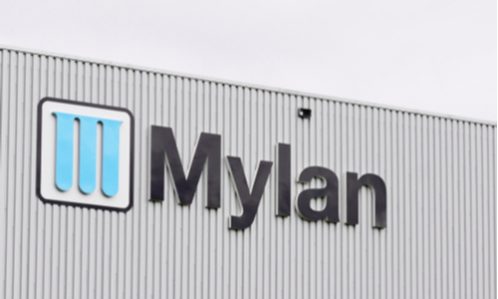
Mylan, CVS Health Corp. units, and other healthcare companies have successfully evaded a proposed class action lawsuit over alleged EpiPen price-gouging. The ruling, handed down by Judge Eric Tostrud of the US District Court for the District of Minnesota, determined that the plaintiffs did not meet the necessary standards for class certification.
The lawsuit, brought by Rochester Drug Co-Operative Inc. and Dakota Drug Inc., accused Mylan, a subsidiary of global pharmaceutical company Viatris Inc., of engaging in bribery and kickbacks to CVS Caremark and other pharmacy benefit managers. These intermediaries, which serve as a crucial link between health insurance providers and drug manufacturers, were allegedly complicit in maintaining a monopoly and artificially inflating the prices of the EpiPen, a vital auto-injector used for treating severe allergic reactions.
However, Judge Tostrud found that the proposed class did not satisfy several key legal criteria. He noted that the class, composed predominantly of members with substantial individual claims, did not meet the numerosity requirement necessary for class action certification. “Plaintiffs have not shown that their proposed class does,” Tostrud wrote, emphasizing the insufficiency in the class’s size and commonality.
Read more: Viatris Unit Mylan Cleared from DOJ Antitrust Investigation
Furthermore, the judge ruled that the plaintiffs, Rochester and Dakota, failed to meet the accurate-representation requirement. Tostrud pointed out that these companies could not adequately represent the class since they purportedly suffered harm from the same actions that benefited other class members. According to the ruling, some class members experienced advantages from EpiPen price hikes in the form of additional service fees, rebates, and inventory appreciation.
The court also highlighted the plaintiffs’ inability to demonstrate that the alleged bribery-kickback scheme had a uniform impact on all class members, a necessity under federal law for certifying a class action.
This decision comes amidst a backdrop of ongoing legal challenges and investigations for Mylan. In a separate development, Viatris announced on Tuesday that the Department of Justice had removed Mylan and its former president from an antitrust investigation into the generic drug industry. Moreover, the US Supreme Court in April declined to reinstate antitrust litigation against Mylan initiated by Sanofi SA, which accused Mylan of engaging in anti-competitive practices to protect the EpiPen from market competition.
Source: News Bloomberg Law
Featured News
Big Tech Braces for Potential Changes Under a Second Trump Presidency
Nov 6, 2024 by
CPI
Trump’s Potential Shift in US Antitrust Policy Raises Questions for Big Tech and Mergers
Nov 6, 2024 by
CPI
EU Set to Fine Apple in First Major Enforcement of Digital Markets Act
Nov 5, 2024 by
CPI
Six Indicted in Federal Bid-Rigging Schemes Involving Government IT Contracts
Nov 5, 2024 by
CPI
Ireland Secures First €3 Billion Apple Tax Payment, Boosting Exchequer Funds
Nov 5, 2024 by
CPI
Antitrust Mix by CPI
Antitrust Chronicle® – Remedies Revisited
Oct 30, 2024 by
CPI
Fixing the Fix: Updating Policy on Merger Remedies
Oct 30, 2024 by
CPI
Methodology Matters: The 2017 FTC Remedies Study
Oct 30, 2024 by
CPI
U.S. v. AT&T: Five Lessons for Vertical Merger Enforcement
Oct 30, 2024 by
CPI
The Search for Antitrust Remedies in Tech Leads Beyond Antitrust
Oct 30, 2024 by
CPI